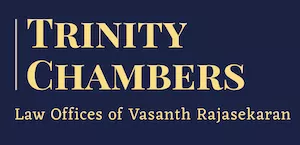- within Litigation and Mediation & Arbitration topic(s)
- in United States
- within Litigation and Mediation & Arbitration topic(s)
- with readers working within the Law Firm industries
- within Real Estate and Construction, Government, Public Sector and Insolvency/Bankruptcy/Re-Structuring topic(s)
- with Finance and Tax Executives
Introduction
The Delhi High Court in M/s Indure Pvt. Ltd. v. Aneja Construction (India) Ltd. [2024:DHC:9861] reaffirmed the principle that statutory timelines for challenging arbitral awards under Section 34 of the Arbitration and Conciliation Act, 1996 ("A&C Act") are sacrosanct. The case revolved around whether a defective filing, corrected after the limitation period had expired, could be considered a valid challenge to an arbitral award. The High Court, in rejecting the petition, emphasised that procedural non-compliance cannot be condoned beyond the statutory period prescribed under the A&C Act. In this article, we navigate through the facts of the case and the findings rendered by the Delhi High Court.
Brief Facts
The dispute arose between M/s Indure Pvt. Ltd. and Aneja Construction (India) Ltd. regarding payments due under a construction contract. The matter was referred to arbitration, where the learned arbitrator issued an award on 22 August 2017 in favour of Aneja Construction. The award directed Indure Pvt. Ltd. to pay Rs. 1,00,21,945 as the balance of running bills, Rs. 46,28,078 as a refund of service tax, and Rs. 1,17,04,846 as a refund of retention money. Additionally, interest at 12% per annum was awarded on the running bills and retention amount from 1 April 2016 until the date of the award, and at 10% per annum from the date of the award until the realisation of payment. The arbitrator also dismissed all counterclaims filed by Indure Pvt. Ltd.
Under Section 34(3) of the A&C Act, a party has three months from the date of receipt of the award to file a challenge. The deadline for Indure Pvt. Ltd. to file its challenge was 22 November 2017, with an additional condonable period until 22 December 2017. Indure Pvt. Ltd. attempted to file its petition under Section 34 on 18 November 2017. However, the filing was incomplete, lacking essential documents such as the vakalatnama, supporting affidavit, and a copy of the arbitral award. The defects were not rectified until 5 January 2018 beyond the permissible limitation period.
The Respondent, Aneja Construction, objected to the maintainability of the petition, arguing that the initial filing was non est and could not stop the clock for limitation purposes. The High Court was thus tasked with deciding whether the petition was time-barred and whether the defective filing could be considered a valid challenge under Section 34.
Arguments from Both Sides
Indure Pvt. Ltd., the petitioner, argued that the initial filing on 18 November 2017 was within the prescribed limitation period and that defects in the filing were later cured. It relied on Dakshin Haryana Bijli Vitran Nigam Ltd. v. Navigant Technologies Pvt. Ltd., (2021) 7 SCC 657, to argue that the limitation period under Section 34(3) begins from the date on which a signed copy of the award is received, and since it had taken steps to file the challenge before the expiry of this period, the subsequent rectification should be considered valid. It contended that procedural lapses in the filing should not result in the outright dismissal of its petition.
Aneja Construction countered by arguing that the initial filing was incomplete and hence non est in law. Aneja Construction also highlighted that the petition was re-filed on 5 January 2018 well beyond the condonable period under Section 34(3). It argued that allowing such a belated rectification would defeat the purpose of having a strict limitation regime in arbitration matters.
Findings of the Delhi High Court
The Delhi High Court ruled in favour of Aneja Construction, holding that Indure Pvt. Ltd.'s challenge was time-barred. It observed that the initial filing on 18 November 2017 was defective as it lacked crucial documents, including the arbitral award. The High Court reiterated that an application under Section 34 must be accompanied by the arbitral award; otherwise, it is not a valid filing.
The High Court noted that the defects were not cured until 5 January 2018, well beyond the additional 30-day window allowed under the proviso to Section 34(3) of the Arbitration Act. It held that the petitioner had failed to establish that the award had been received after 22 August 2017, and absent any evidence to the contrary, the limitation period had to be reckoned from the date of the award itself. The High Court rejected the argument that the burden was on the tribunal to prove the date of receipt of the award. Instead, it placed the burden on the petitioner to show that the award had been received at a later date.
The High Court relied on Vasishta Mantena NH04 JV v. Blacklead Infratech Pvt. Ltd., 2024 SCC OnLine Del 7588, where it was held that filing an application under Section 34 without annexing the arbitral award is a non-est filing and does not stop the limitation period. The High Court observed that a petition without essential documents cannot be considered a challenge in law and that such filings made merely to save limitation are impermissible.
Consequently, the High Court dismissed the petition, holding that the challenge was filed beyond the period prescribed under Section 34(3) and was therefore non-maintainable.
Comment
This judgment reinforces the principle that strict adherence to procedural requirements is essential in arbitration-related litigation. By dismissing the petition as time-barred, the Delhi High Court has upheld the sanctity of the limitation period under Section 34(3), ensuring that arbitration remains an efficient and time-bound dispute resolution mechanism.
The content of this article is intended to provide a general guide to the subject matter. Specialist advice should be sought about your specific circumstances.



